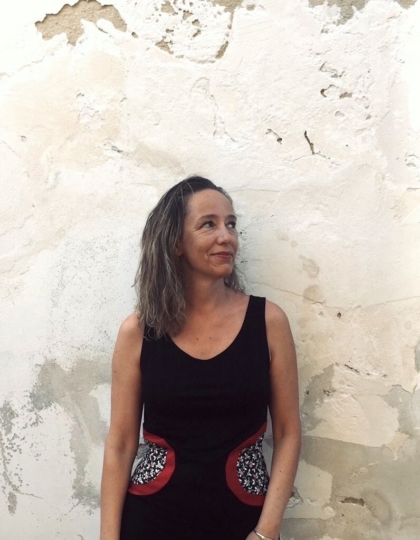A Conversation with Federica Tourn
Journalist Federica Tourn was the first winner of the Piazza Grande Award, which was launched in 2019 by the International association of Religion Journalists (IARJ) and the Fondazione per le Scienze Religiose Giovanni XXIII (FSCIRE) to encourage best practices in journalism and honor the work of journalists covering religion and spirituality. Within the 2019 European Academy of Religion, Tourn was honored for her article, God Behind Bars (Dio dietro le sbarre
), published by the Catholic magazine, Jesus. Her article examined the lack of religious services in Italian prisons.
Read more about the award and submit your works by May 31, 2023 Eligibility and FAQs: Piazza Grande Religion Journalism Award 2023 • International Association of Religion Journalists (theiarj.org)
As a freelance journalist, Tourn covers religions, human rights, feminism and migrant issues. She has reported from countries including Syria, Ukraine, Namibia and Bosnia.

Question:
Why did you choose journalism, and specifically to report about religion?
Answer:
I always wanted to write, and journalism seemed to me from a very young age to be an opportunity to express the real world in words. I also wanted to travel and write about people who are different from me, focusing on injustices and social inequalities.
In short, I wanted to try and give a voice to the voiceless. So, being involved in social journalism and human rights was a natural choice. Religion also is an essential part of understanding the lives of people and societies.
There was also an element of chance. My first collaboration, when I was 19 years old, was with the weekly of the Catholic diocese of my city: here I took my first steps and learned not only the rudiments of journalism but also how the Catholic Church works. Then, in the following years, as a freelancer and as a Protestant in a Catholic country, I continued to work with various religious groups. It often happens like that in life: You start almost by chance on a thread, and the more you get to know about it, the more you continue to study it because the in-depth study never ends.
Question:
What are the main challenges you have faced as a woman in this field?
Answer:
Women are just as capable and can be as skilled as their male colleagues, so they should be able to hold any position from correspondent to editor of a newspaper. The fact that women are still underrepresented at the management level or in other positions of responsibility is a problem that unfortunately continues to plague our business. The challenge is twofold: trying to work in a field, publishing and journalism, that has been going through a major crisis for years and therefore offers fewer and fewer job opportunities, and trying to do so as a woman. The difficulty women face in the job market is clear in the data from Italy.
Question:
You won the first Piazza Grande Award. What is the significance for you?
Answer:
It was a very important acknowledgement. As a freelancer, to me it was even more significant. it was a valuable confirmation that my work is meaningful to readers.
Question:
Your article reports on the lack of religious services in Italian prisons. Could you tell us more?
Answer:
A person’s faith, while serving a sentence in prison, is often the only source of hope and resilience. It is no coincidence that so many conversions take place in prison. In Italian prisons, however, if you are not a Catholic, it is still very difficult to get religious comfort from a representative of your faith community. In fact, despite the fact that freedom of worship behind bars is a right, in Italy there is still de facto discrimination between chaplains, who are present in every prison facility on a permanent basis, and ministers and religious leaders of other faiths, who only have access to prison upon an express request by the prisoner and after quite a few bureaucratic difficulties.
Moreover, every prison has a chapel where masses can be held, whereas only 23% of prison establishments have space for other services, with the result that prisoners are forced in most cases to pray locked in their cells. This discrimination between Catholics and believers of other faiths certainly does not reflect religious pluralism.
Question:
Finally, can you tell us more about your view of religion journalism in the contemporary world?
Answer:
Religions play a fundamental role in contemporary society and from a secular perspective they offer an important interpretive key to modern-day society and politics even within secularized countries. By offering the view of religious communities and restoring the plurality of their voices, religious journalism contributes to a more complete picture of our contemporary world. Lastly, restoring the richness of different religious cultures is undoubtedly an indispensable contribution to coexistence and reciprocal respect against prejudice, fundamentalism, and fanaticism.
Question:
As a community of journalists, how can we improve our reporting on religion?
Answer:
As religion journalists, we need to continue pursuing accuracy by always becoming better informed about what is happening in our world. We need to continue studying and learning by talking to people.
We all have prejudices that we need to be careful to avoid. When reporting on religion, we can find ourselves influenced by political, patriarchal, and colonial assumptions that needs to be deconstructed.
The best way to see Federica Tourn’s ongoing work is to follow her:
